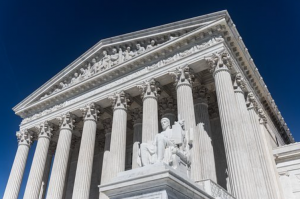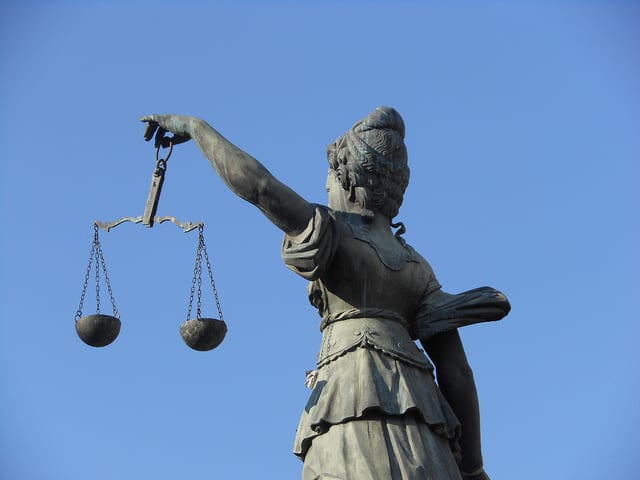However, three justices said that anyone who resists arrest should expect to be violently restrained.
The Supreme Court will allow the parents of Nicholas Gilbert, a St. Louis man who was allegedly killed by police, to continue their lawsuit against the city.
According to NBC, Gilbert was arrested in 2015 for trespassing and failing to appear in court for a traffic ticket. After he was taken into police custody, Gilbert tried to commit suicide by hanging inside his jail cell.
When officers realized what Gilbert was trying to do, they restrained and handcuffed him. However, Gilbert continued to struggle—he was placed on the floor of the cell, face-down, with one officer applying pressure to his back and torso.
Gilbert, recalls NBC News, repeatedly tried to raise his chest to get the officer off his back. He also said, “It hurts. Stop.”
After about 15 minutes of struggling to move and breathe, Gilbert stopped moving and went unconscious.

While officers did summon medical aid, Gilbert was pronounced dead upon arrival at a local hospital.
In an unsigned opinion that brought some dissent from three of the bench’s conservative justices, the court sent the case back to the U.S. Circuit Court of Appeals for the 8th Circuit for further review. According to the court’s majority, it was unclear whether the appeals court thought the use of a prone restraint would always be constitutional if a person simply appeared to be resisting officers.
The court, says USA Today, either dismissed or failed to consider evidence, such as the police department’s guidance that suspects be moved off their stomachs as soon as possible.
In its ruling, the Supreme Court observed that the St. Louis Police Department specifically cautions officers about the dangers of applying pressure to a prone subject’s back.
“Officers placed pressure on Gilbert’s back even though St. Louis instructs its officers that pressing down on the back of a prone subject can cause suffocation,” the justices wrote. “The struggles of a prone suspect may be due to oxygen deficiency, rather than a desire to disobey officers’ commands.”
However, Justices Clarence Thomas, Samuel Alito, and Neil Gorsuch dissented, finding that, because Gilbert had offered some resistance, the courts should have arrive to an alternate conclusion.
“The officers plainly had a reasonable basis for using some degree of force to restrain Gilbert so that he could not harm himself, and it appears that Gilbert, despite his slight stature, put up a fierce and prolonged resistance,” Alito wrote for the minority dissent. “On the other hand, the officers’ use of force inflicted serious injuries, and the medical evidence on the case of death was conflicting.”
Sources
Supreme Court lets lawsuit continue in death of man detained in prone position
Supreme Court returns St. Louis excessive force case involving death in jail to lower court


Join the conversation!